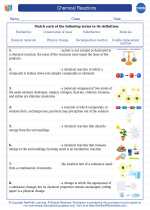Climate Change
Climate change refers to significant and long-term changes in the statistical distribution of weather patterns over periods ranging from decades to millions of years. These changes can occur due to natural processes or human activities. In recent decades, the term has been largely used to refer to the ongoing global warming caused by human activities, such as the emission of greenhouse gases.
Causes of Climate Change
- Greenhouse Gas Emissions: The burning of fossil fuels, deforestation, and industrial processes release carbon dioxide (CO2), methane (CH4), and other greenhouse gases into the atmosphere. These gases trap heat, leading to the warming of the Earth's surface.
- Deforestation: The removal of trees reduces the capacity of the environment to absorb CO2 from the atmosphere, contributing to increased concentrations of greenhouse gases.
- Agricultural Practices: Intensive farming, including the use of fertilizers and livestock, can release significant amounts of methane and nitrous oxide, both potent greenhouse gases.
- Industrial Processes: Certain industrial activities, such as cement production and chemical manufacturing, release greenhouse gases and other pollutants into the atmosphere.
Effects of Climate Change
Climate change has wide-ranging impacts on the environment, ecosystems, and human societies. Some of the notable effects include:
- Rising Global Temperatures: Average global temperatures are increasing, leading to changes in weather patterns, rising sea levels, and melting polar ice caps.
- Extreme Weather Events: Climate change is linked to an increase in the frequency and intensity of extreme weather events such as hurricanes, droughts, and heatwaves.
- Loss of Biodiversity: Changes in temperature and precipitation patterns can disrupt ecosystems, leading to the loss of plant and animal species.
- Impact on Agriculture: Climate change can affect crop yields, water availability, and the spread of pests and diseases, posing challenges to food security.
- Health Risks: Heat-related illnesses, the spread of vector-borne diseases, and compromised air and water quality are among the health risks associated with climate change.
Addressing Climate Change
Addressing climate change requires global cooperation and action at various levels, including:
- Reducing Greenhouse Gas Emissions: Transitioning to renewable energy sources, improving energy efficiency, and implementing policies to limit emissions from industry, transportation, and agriculture.
- Adaptation Strategies: Developing strategies to adapt to the impacts of climate change, such as building resilient infrastructure, enhancing water management, and implementing sustainable land-use practices.
- International Agreements: Participation in international agreements and frameworks, such as the Paris Agreement, aimed at limiting global temperature increases and supporting adaptation efforts.
- Public Awareness and Education: Raising awareness about climate change and advocating for sustainable lifestyles, conservation efforts, and the protection of natural resources.
Study Guide
When studying climate change, it's essential to understand the scientific principles behind the greenhouse effect, the sources and impacts of greenhouse gas emissions, and the various strategies for mitigating and adapting to climate change. Additionally, exploring case studies of specific regions or ecosystems affected by climate change can provide valuable insights into the real-world implications of these environmental shifts.
Key topics to focus on include:
- The greenhouse effect and its role in regulating the Earth's temperature
- The major greenhouse gases and their sources
- The impacts of climate change on natural systems and human societies
- Strategies for reducing greenhouse gas emissions and promoting sustainable practices
- The role of international cooperation in addressing climate change
Additionally, staying informed about current developments in climate science, policy, and technology can provide a broader understanding of the ongoing efforts to address climate change on a global scale.
[Climate Change] Related Worksheets and Study Guides:
.◂Chemistry Worksheets and Study Guides High School. Chemical Reactions

 Worksheet/Answer key
Worksheet/Answer key
 Worksheet/Answer key
Worksheet/Answer key
 Worksheet/Answer key
Worksheet/Answer key
 Worksheet/Answer key
Worksheet/Answer key
 Worksheet/Answer key
Worksheet/Answer key
 Vocabulary/Answer key
Vocabulary/Answer key
 Vocabulary/Answer key
Vocabulary/Answer key
 Vocabulary/Answer key
Vocabulary/Answer key
